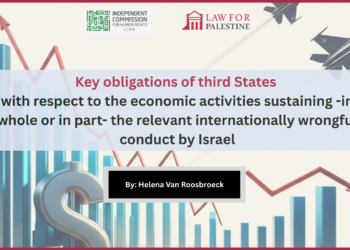New Study Challenges Legality of Israel’s Establishment Under International Law
The Iranian Journal of International and Comparative Law has published a new article in its latest issue (Volume 3, Issue 1) by Associate Professor Seyed Yaser Ziaee, titled “All of Palestine for the Inhabitants of Palestine: The Legal Consequences of the Internationally Wrongful Act in the Establishment of Israel.”
In this legal analysis, Ziaee examines the establishment of the State of Israel in 1948 through the lens of international law, arguing that the process constituted an internationally wrongful act with lasting legal implications for the United Nations and states involved in its creation.
Drawing on historical and legal sources, the study traces the evolution of the Palestine question from the Balfour Declaration of 1917 and the League of Nations Mandate of 1922 to UN General Assembly Resolution 181 (the Partition Resolution). According to Ziaee, the partition and subsequent establishment of a Jewish state in Palestine contravened key principles of international law—particularly those governing self-determination, non-discrimination, and the administration of mandated territories.
The article interprets Article 22 of the Covenant of the League of Nations and Article 76 of the UN Charter as confirming that sovereignty over mandated or trust territories must rest with their indigenous populations. Ziaee contends that any departure from this principle, including the establishment of a state based on religious or ethnic criteria, represents a breach of international obligations.
In addressing the legal consequences of what he characterizes as an internationally wrongful act, Ziaee proposes that the United Nations and member states complicit in the 1948 process bear international responsibility. The study calls for remedies under international law, including restitution in integrum (restoration to the original state), reparations, and the principles of non-recognition and non-cooperation with the wrongful situation.
Ultimately, the paper concludes that the restoration of “the entirety of Palestine’s sovereignty to its Palestinian inhabitants” is required to remedy the violations and fulfill the international community’s obligations.
The full article is available here





